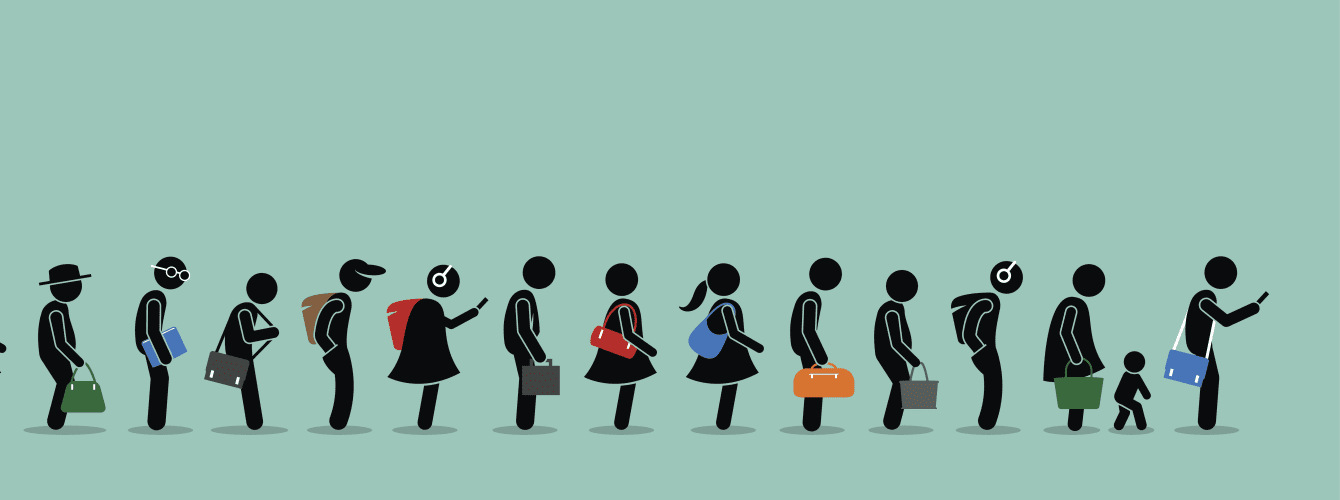
Travel is ‘roaring back’ — but the industry might not be ready for a boom

The HoverTap sensor can detect the location of a user’s finger over a touchscreen – all without a camera.
Last year wasn’t a stellar year for travelers.
Perhaps that’s why so many are pinning their hopes on 2022.
Travel bookings and inquiries are surging, say travel insiders, in an upward trajectory that, if realized, may both benefit and challenge travelers in the coming year.
“People want to make up for lost time”
Travel in 2022 will be even busier than before the pandemic, said Brandon Berkson, the founder of the New York-based travel company Hotels Above Par.
“People want to make up for lost time,” he said, adding that potential customers have stated their desire to travel next year is greater than ever before.
Ben Drew, president of the TripAdvisor-owned travel company Viator, said in December that the demand for upcoming travel is “extraordinary.”
“Travel came roaring back,” he said. “Even in the face of omicron, travelers are booking more experiences than at this time in pre-pandemic 2019.”
Viator’s 2022 data shows bookings are also increasing from summer to fall, a time when travel typically slows down.
While acknowledging 2022 may “come with challenges,” Drew said he expects it to be “a chapter of resilience, resurgence and growth for the travel industry.”
Is the industry ready?
While news of a business boom is likely music to the beleaguered travel industry’s ears, it could be problematic if it happens too quickly, said Manoj Chacko, executive vice president of the business management company WNS.
“The speed and force of demand could catch some travel industry players off guard,” he said. “Airlines, for instance, could struggle to re-hire pilots. Moreover, pilots might need additional training and skill refresher programs.”
Airlines aren’t the only part of the travel sector that may struggle to hire staff this year.
Some 62 million travel-related jobs were lost in 2020, according to the World Travel & Tourism Council. While many of these jobs are now returning — in October, the WTTC estimated the industry’s employment levels would rise 18% in 2022 — former employees aren’t rushing back to their old roles.
Burned by industrywide layoffs, some workers settled into other industries. Others are unwilling to take front-line positions in an era of rising customer anger and aggressive behavior.
One in 13 travel-related jobs in the United States is expected to remain unfilled, according to a WTTC staffing report published in December. In Portugal, the numbers rise to 1 in 9, according to the report.
“It’s hard to find cooks and enough servers to deal with the surge and the recovery of demand in the industry,” Jon Bortz, the CEO of the U.S.-based Pebblebrook Hotel Trust, told CNBC’s “The Exchange” last year.
To fill the gap, employees are working overtime and managers are “taking shifts,” he said.
For travelers, worker shortages can spell travel delays and a reduction in services, from fewer restaurant reservations to the elimination of daily housekeeping services.
“We were one of the first industries to be hit; we’ll be probably one of the last to recover completely,” said Bortz. “We would certainly ask customers to be patient.”
A push for tech
A dearth of workers underscores the industry’s shift, which started long before the pandemic, to using technology to perform certain jobs in the travel sphere.
Tasks such as delivering room service and cleaning airports can be done by robots, said Rachel Fu, chair of the University of Florida’s Tourism, Hospitality and Event Management department. Hotels can also use “concierge robots” to help customers make reservations, she said.
“Using AI wisely can significantly reduce labor costs without sacrificing the level of personalized services,” said Fu.
”We will be seeing many more touchless elevators next year.
Nima ZiraknejadNZ TECHNOLOGIES, FOUNDER AND CEO
This may help businesses close some labor gaps, but innovations that directly affect travelers may be even more important as companies continue to battle for tourist dollars.
Some hotels let guests check in and out, book airport transfers and make spa appointment via apps, like the one by luxury brand Four Seasons.
“Unlike many other hospitality apps, Four Seasons Chat is powered by real people on property,” said Ben Trodd, senior vice president of sales and hotel marketing at Four Seasons Hotels and Resorts.
A technology called “HoverTap” makes elevators touch-free. Created by the tech company NZ Technologies, these elevators are in use in Canada, according to company representatives.
“We will be seeing many more touchless elevators next year,” said Nima Ziraknejad, the company’s founder and CEO.
Here’s how they work:
Elevators are just the beginning. The technology can be used on any high-touch surface, said Ziraknejad. The company plans to expand into self-service kiosks in airports, restaurants and hotels, as well as ATMs and airplane seatback entertainment systems, he said. Soon companies that have these technological advancements will have an advantage over those that don’t, said WNS’ Chacko. “In some countries, passengers are still expected to fill out paper forms and adhere to the norms of officials physically handling their passports and other travel documents,” he said. “Elsewhere, for instance, in Spain, most information … can be uploaded onto a single app.” As customer expectations and the availability of touchless technologies increase, these advancements “will surely emerge as a key competitive differentiator,” he said.
Reported by: Monica Buchanan Pitrelli (@MonicaPitrelli)



